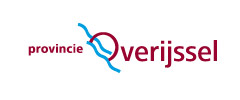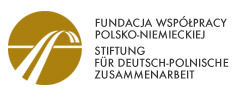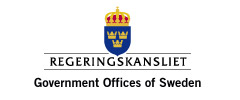Kazakhstan open to debate on asbestos
Article in Bangladesh's The New Nation, Internet Edition
04.05.2009 | The New Nation, Bangladesh
For the first time in the history of Kazakhstan a public open debate was held last week to discuss the issue of chrysotile - white - asbestos. The High Level International Expert Conference on "Asbestos and POPs - policies and practices in Kazakhstan and the European Union" in Astana, Kazakhstan, brought together for the first time 75 participants from all sectors to discuss strategies for asbestos and POPs, persistent organic pollutants.
Participants to the conference adopted a resolution with recommendations on asbestos and POPs to the Kazakh government and offered support for a national program to eliminate asbestos related diseases, in which the World Health Organisation will cooperate. Asbestos is a sensitive issue in Kazakhstan. Some 220.000 metric tons are produced every year. Currently asbestos containing materials are used without restriction in public buildings like hospitals, schools and kindergartens, brakes and other materials in Kazakhstan.Ivan Ivanov of the World Health Organisation (WHO) highlighted that recently the International Agency for Research on Cancer (IARC), has reconfirmed the classification of chrysotile asbestos as human carcinogen and confirmed that Chrysotile causes mesothelioma and cancer of the lungs, the larynx, and the ovary. Both organisations have concluded that there are safer substitutes for all uses of chrysotile asbestos and that it is very difficult to control exposure to asbestos, particularly in resource constraint settings and that is very difficult and costly to remove asbestos already in place.
The new vice-minister of Environment, Mr. Majit Turmagambetov, chaired the high-level segment of the 2-day conference, in which the head of the European Commission Delegation to Kazakhstan, Norbert Jousten, formulated his strong support for the conference saying that more information on asbestos is necessary and this will create a better environment for the people in Kazakhstan. The French Ambassador, Mr Alain Couanon, compared the situation in Kazakhstan to his own country, which along with 40 other nations has banned all uses of asbestos, indicating that the mortality from asbestos in France has reached more than 35.000, and could rise to an estimated total of 50 to 100.000. He also emphasized that asbestos was the leading cause of occupational cancer in France.
The Netherlands Ambassador, Mr. Klaas van der Tempel explained that his country was a great user of asbestos - in i.e. housing, brakes, roads, flooring - despite first warnings as early as 1932, that asbestos was linked to diseases and the recognition of asbestosis in 1949. The Netherlands regulated asbestos in several stages, with a first ban of "blue" asbestos in 1997, and not until 1998 a ban of all types and uses of asbestos, including "white", or chrysotile asbestos. But this is not the end, but the beginning of the problem, as the great cost of the previous asbestos use will only now appear. Studies showed that, had the Netherlands taken measures to ban asbestos when first signs of the problem became clear, in the 1930s, 34.000 lives could have been saved.
The Deputy Director General of the German Ministry for the Environment, Mr. Alexander Nies, emphasized "that more than 40 countries had already banned the production and use of chrysotile asbestos because of its proven cancerogenity to humans. For countries like Kazakhstan with continuing chrysotile industry it is of utmost importance that adequate risk management measures are in place. Listing of chrysotile in the Rotterdam Convention would support the dissemination of risk-related information to importing countries and enable them to take risk-informed decisions to protect their citizens."
Kaisha Athakanova, President of the Kazakh environmental NGO network Eco Forum and Sascha Gabizon, WECF Executive Director were extremely satisfied with the outcome of the conference: "the joint resolution is a milestone for Kazakhstan in terms of asbestos. Never before the issue of potential hazards and health risks of white asbestos have been the subject of open dialogue. This was a real historic conference, which has opened the door in the right direction".
http://nation.ittefaq.com/issues/2009/05/04/news0260.htm
Related News
Asbestos in Kazakhstan - project results
Kazakhstan is one of the biggest producers and consumers of asbestos, but the public is hardly informed about the dangers surrounding them in daily life
20.05.2011 | Alexandra Caterbow
WECF co-organised International Expert Conference and recommends better control of hazardous substances in Russia
For the first time in Russia a public open debate was held this week to discuss the accession of the Rotterdam Convention by the Russian Federation and the issue of chrysotile asbestos
18.10.2010 | WECF news
WECF at Asia and Pacific Region Ministerial Conference in Astana, 2010 - Recommendations and Opportunities for Green Growth
Lessons on environmental challenges on uranium and asbestos mining in Kazakhstan
07.10.2010 | WECF News
CSD 18: “Asbestos – who pays the bill? WECF Lunch Event at UN Commission for Sustainable Development
Testimonies and Dialogue on Policy Recommendations” In the framework of the 18th session of the UN Commission for Sustainable Development (CSD) in New York, May 6, 2010
11.06.2010 | WECF Report
CSD 18: WECF member speaks at high level UN conference on need for global uranium mining monitoring and clean-up
WECF member Kaisha Atakhanova speaks on the need for stronger control of uranium mining
30.05.2010







































